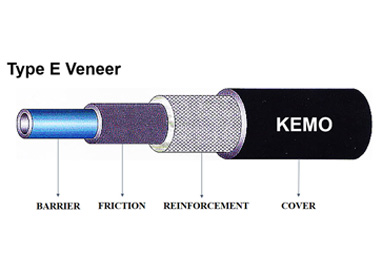Lower Resistance AC Hose for Enhanced Performance and Durability
9月 . 24, 2024 13:56 Back to list
Lower Resistance AC Hose for Enhanced Performance and Durability
Understanding Reduced Barrier AC Hoses An Essential Component for Automotive Air Conditioning Systems
In the realm of automotive engineering, especially concerning air conditioning systems, reduced barrier AC hoses play a pivotal role in enhancing performance and efficiency. These specialized hoses are designed to transport refrigerants and oils while minimizing the leakage of these crucial substances into the environment. This article delves into the significance, functionality, and benefits of reduced barrier AC hoses.
What Are Reduced Barrier AC Hoses?
Reduced barrier AC hoses are advanced components that serve as conduits for refrigerants within an automotive air conditioning system. Unlike traditional hoses, which may allow varying degrees of refrigerant permeation, reduced barrier hoses are engineered with enhanced materials and technologies to significantly reduce this leakage. This is essential for maintaining the intended pressure and efficiency in the AC system, ensuring optimal performance and longevity of the vehicle’s cooling capabilities.
The Importance of Minimizing Refrigerant Loss
Refrigerants, typically gases such as R-134a or R-1234yf, are integral to the operation of automotive air conditioners. They absorb heat from the cabin air and release it outside, thus providing a comfortable environment for passengers. However, if refrigerants leak due to the use of inferior hoses, it can have several detrimental effects
1. Environmental Impact Many refrigerants are potent greenhouse gases. Reducing leakage through improved hose technology helps minimize the vehicle's ecological footprint.
2. System Efficiency Loss of refrigerant leads to reduced cooling efficiency. This often results in higher energy consumption, which can affect fuel economy adversely.
reduced barrier ac hose

3. Cost Implications Frequent refilling of refrigerants due to leakage can escalate maintenance costs for vehicle owners. In contrast, using reduced barrier AC hoses can lead to cost savings over time by lessening the need for refrigerant top-offs.
Benefits of Reduced Barrier AC Hoses
1. Enhanced Performance By maintaining refrigerant levels, reduced barrier hoses optimize the AC system's performance, delivering consistent and efficient cooling.
2. Durability These hoses are built to withstand harsh automotive environments, including exposure to heat, moisture, and chemicals. Their robust design ensures they will have a longer lifespan compared to traditional hoses.
3. Improved Safety Reduced risk of refrigerant leaks contributes to overall vehicle safety. In addition, it aligns with stricter regulations regarding refrigerant emissions, ensuring compliance with environmental standards.
4. Versatility Reduced barrier hoses can be utilized across various vehicle types and models, making them an adaptable solution for many automotive applications.
Conclusion
In conclusion, reduced barrier AC hoses represent a significant advancement in automotive air conditioning technology. By minimizing refrigerant leakage, these hoses contribute to environmental sustainability, enhance system efficiency, and provide cost savings for vehicle owners. As automotive manufacturers and consumers increasingly prioritize efficiency and eco-friendliness, the adoption of reduced barrier AC hoses is likely to continue growing, solidifying their importance in modern automotive design and maintenance. Investing in quality components such as reduced barrier AC hoses is not just a matter of compliance; it’s a step toward a more efficient and environmentally responsible future in automotive engineering.
